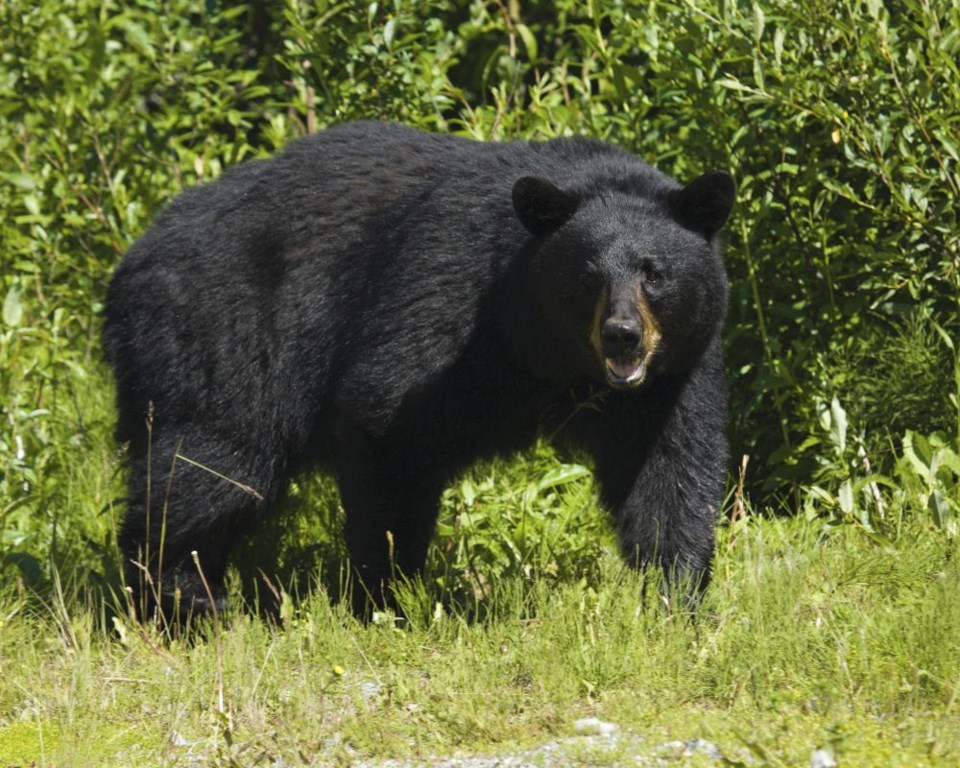THUNDER BAY - As camping season kicks off this long weekend, those enjoying nature should exercise caution to avoid any unwanted visitors.
The Ministry of Natural Resources and Forestry is providing guidelines to outdoor enthusiasts to help reduce the chances of coming across bears, which are awake after a winter of hibernation.
Listed below are suggestions for encountering a bear:
- If the bear is not paying any attention to you, slowly and quietly back away while watching the bear to make sure it isn’t following you.
- Do not approach the bear.
- If the bear obviously knows you are there, raise your arms to let the bear knowyou are a human. Make yourself look as big as possible. Speak in a firm but non-threatening voice while looking at the bear and backing away.
- Watch the bear to gauge its reaction to you. Generally, the noisier the bear is, the less dangerous it is, providing you don’t approach the bear. If a bear huffs, pops its jaw or stomps its paws on the ground, it wants you to back away and give it space.
- If a bear approaches you, drop any food you may be carrying and continue backing up.
- If the bear continues to approach, stand your ground and stay calm—use your whistle or air horn, speak loudly, stand tall, wave your arms and throw objects.
- If a bear keeps advancing and is getting close, be aggressive and continue to stand your ground. Use bear spray and anything else to threaten or distract the bear; bears see if it is safe to approach you.
- Do not run or climb a tree. Bears can run faster and climb better than you.
- If the bear makes contact, fight back.
The ministry also provided tips on how to avoid coming across bears.
- Make noise as you move through wooded areas, especially in areas where background noise is high, such as near streams and waterfalls. Singing, whistling or talking will alert bears to your presence, giving them a chance to avoid you.
- Travel with others if possible.
- Be aware of your surroundings: Do not wear headphones. Keep an eye out for signs of bears, such as tracks, claw marks on trees, fipped-over rocks or fresh bear droppings.
- Consider bringing a whistle, air horn, long-handled axe or bear spray. If you bring bear spray, know how to use it.
- Avoid strong fragrances that may cause a bear to be curious; put any food you are carrying in sealed containers in your pack.
- If you are out with a dog, control it. Uncontrolled dogs may actually lead a bear to you.
- While berry picking, occasionally scan your surroundings to check for bears, and rise slowly from your crouched position so you don’t startle any nearby bears. They may not recognize you as a human when you are in a crouched position.
It's also important to ensure camp sites don't become attractive to bears.
- Look for signs of bear activity nearby. Consider moving elsewhere if it appears a bear has been active in the area.
- No matter where you camp, always pack out all garbage from the backcountry and use bear-resistant containers where available.
- Store food so bears cannot access it; in a bear resistant location or container or hanging at least 4 metres (13 feet) above the ground and 3 metres (10 feet) from tree limbs or trunks that can support a bear.
- If you plan to camp in remote areas, you should take additional precautions to ensure your personal safety.
- If you are going to an Ontario Park or a private campground, follow advice provided.
- Eliminate or reduce odours from yourself, your camp, your clothes and your vehicle.
- Never feed or approach a bear.
- Clean fsh away from your campsite.
- Store leftover food away from your campsite in sealed plastic bags and, if possible, in bear-resistant containers.
- Burn food scraps and fat drippings thoroughly in a fre. Drain dish water away from your camp site.
- Never cook, eat or store any food (including snacks), cooking equipment or toiletries in your tent.
- If you are sleeping in a tent, try not to sleep in clothes you have worn while cooking.
- Fishing tackle and bait, clothes worn while cooking, garbage, toiletries and all snacks should be stored in a bear-resistant manner and away from the site.
